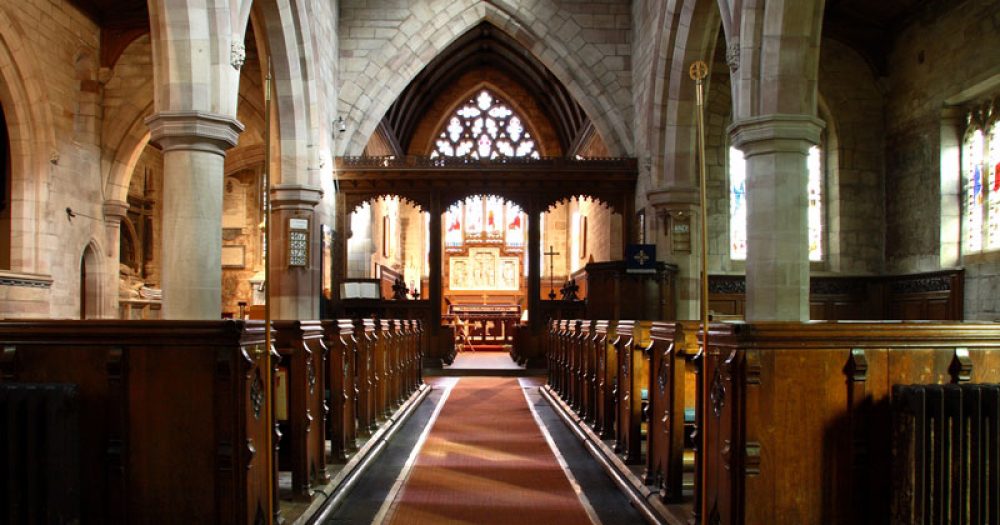Faith schools are amending requirements for prospective pupils to have attended places of worship in the wake of Covid-19 disruption.
Last week, the Office of the Schools Adjudicator (OSA) approved a modification put forward by the governing body of Lowdham Church of England primary, in Nottinghamshire, to remove the need for pupils to have attended church for the 12 months before their application.
Instead arrangements will only apply to “the period when the church or alternative premises have been available for public worship”.
It is a move that seems to have been repeated at schools across the country, but critics warn it is “absurd and unfair to use that criterion to assess children’s suitability for school admission in the first place”.
The OSA determination explains that under normal circumstances “where the school is oversubscribed, priority may be given on the basis of faith” and that the school’s arrangements “take account of attendance in places of worship”.
The Lowdham school’s oversubscription criteria specified a prospective pupil would need to have attended church at least once a month for the previous year to qualify as a “regular worshipper”. They also needed a reference from a member of the clergy.
However the OSA said it was “beyond question” that Covid-19 represented a major change in circumstances and therefore agreed to amend the measurement to only apply “to the period when the church or alternative premises have been available for public worship”.
Places of worship were closed in March during the first lockdown.
Under the new lockdown restrictions, which came into force this month, places of worship can open in certain circumstance such as individual prayer, filming an act of worship, or childcare and
Government guidance has acknowledged such spaces play a key role in bringing communities together, but warns “their communal nature also makes them places that are vulnerable to the spread of coronavirus”.
Penny Harvey, the schools admissions adviser at the London Diocesan Board for Schools (LDBS), said many schools had amended their admission rules, including a number of the 163 schools under her board’s umbrella.
It was agreed schools could go through the diocese to contact the OSA to “vary their admission policies in light of the pandemic”.
As with Lowdham school, attendance had not been removed from policies, but caveated to reflect the impact of Covid.
Huw Thomas, the director of education at the Diocese of Sheffield, confirmed that most of its 39 schools had also amended their criteria.
It follows guidance published by the Department for Education for faith schools in July that “some admission authorities may need to seek a variation to their admission arrangements to ensure parents are clear on what they need to do to meet the relevant criteria”.
Geoff Barton, the general secretary of the Association of School and College Leaders, said it would not expect Covid to greatly affect admissions codes, “but it would seem prudent and sensible to make minor adjustments” in light of the pandemic.
However, Alastair Lichten, the head of education at the National Secular Society, said the requirement should be removed altogether as the closures had “made it even more complicated and unworkable to base admissions policies on attendance at places of worship”.







Religion-based discrimination against children being admitted to state-funded schools should be made illegal.
All taxpayers – whether parents or not – contribute the bulk of funding for state schools.
I am certain that the vast majority of taxpayers would support a policy of equal access for ALL children to ALL state-funded schools.
Whilst I can understand where you come from, and agree that almost all ongoing funding comes from the state for maintained schools and academies, the background history to most church schools is that the church (mainly the CofE or RC) donated the land and buildings to the school rather than the public sector. In most instances the Church (in various guises) still owns the land and buildings. It’s therefore not possible to cut them out of the process without their agreement.
The only way to guarantee being able to move on from religion having a part to play in school life, unless the Church agrees to bow out, is if the Government builds new schools on public sector land to replace Church schools. From a quick google it looks like they’d have to build 7,000 new schools (4,700 CofE schools and 2,300 Catholic schools). I would suggest that’s not going to be possible.
Miss, what’s one plus one
Sorry kid, I can’t tell you, your mum and dad ain’t catholics.
The illogicallity of faith schools in a nutshell.
Been a long while since I’ve seen such a ridiculous post.